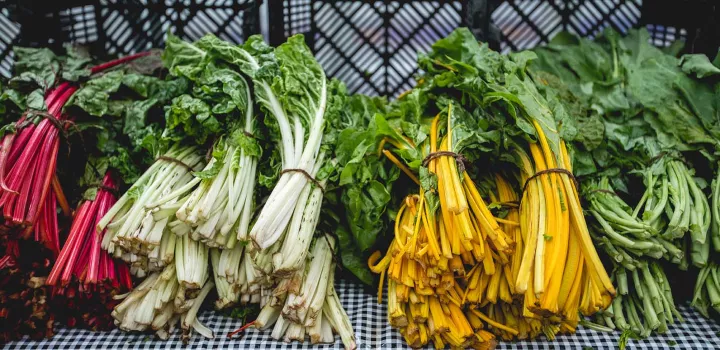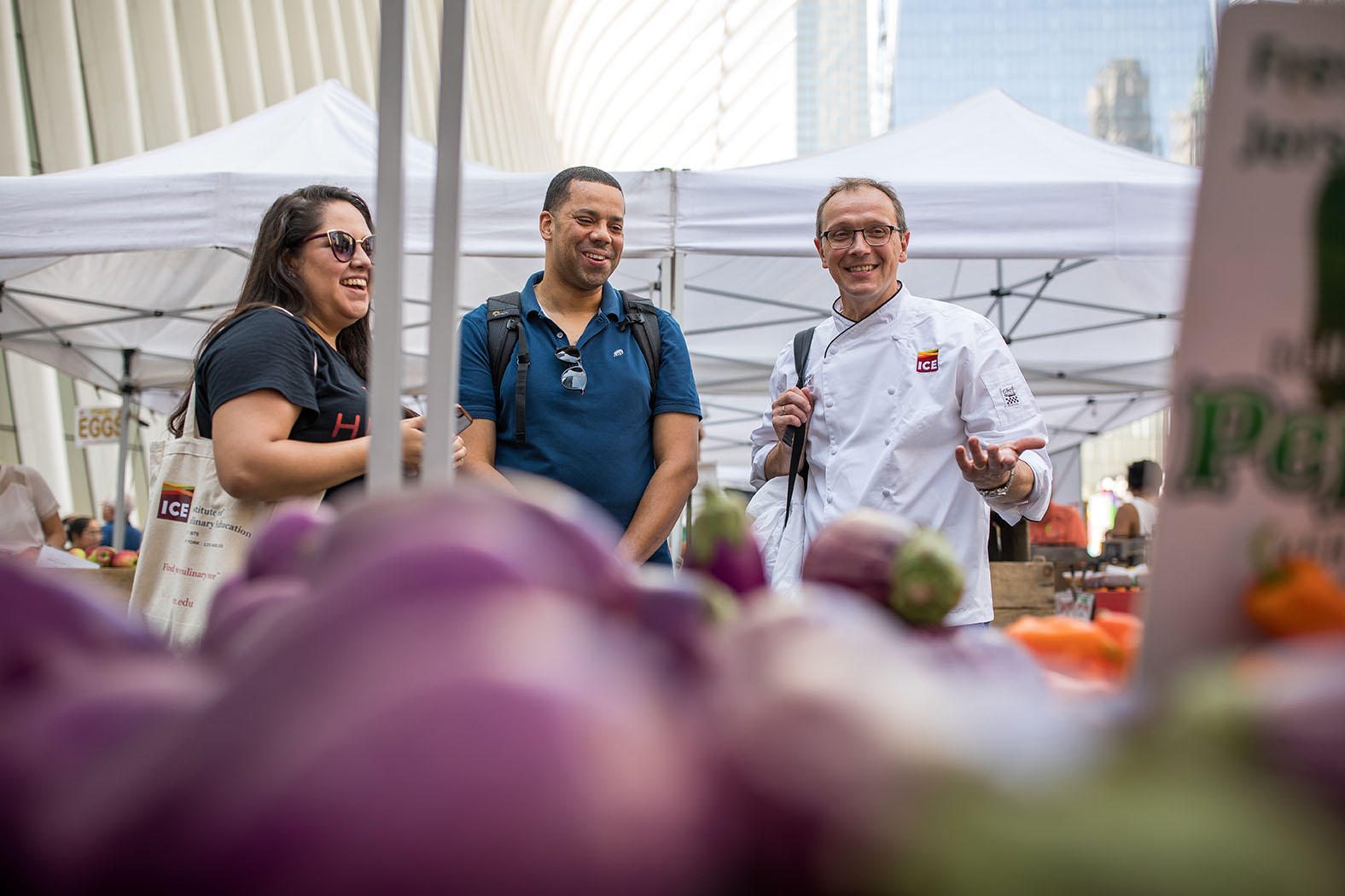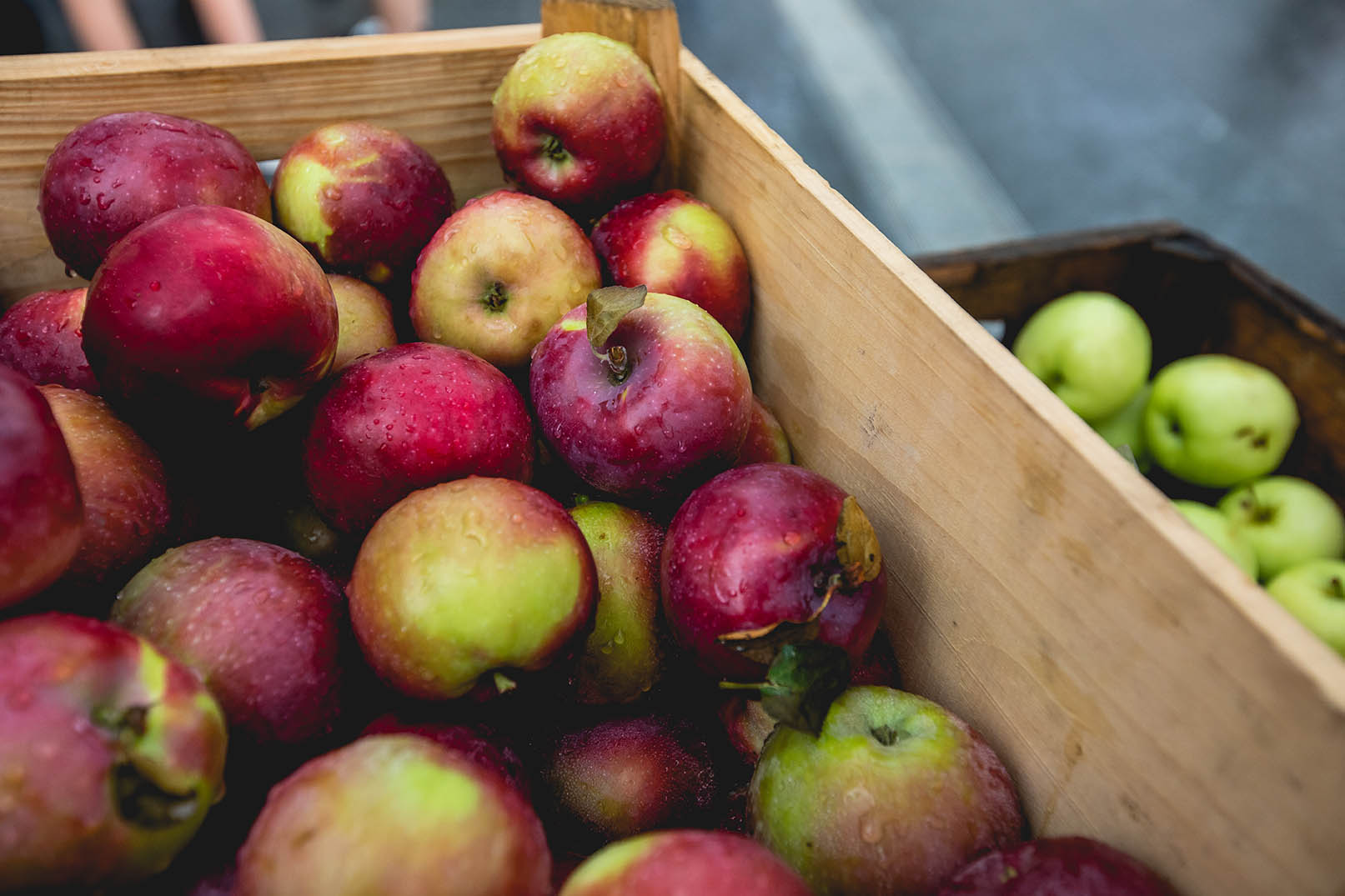
The Benefits of Market Visits
Chef Bill Telepan shares the importance of becoming familiar with local, seasonal ingredients and meeting farmers at markets.
As director of sustainability at ICE, one of my objectives is to bring students to the amazing greenmarkets that New York City has to offer. I like tasty food and produce grown nearby that I can eat right after it is picked — it just tastes much better.
Taste is what drives me as a chef.
This all started when I worked with the legendary chef Alain Chapel in a small town outside of Lyon, France. Chef Chapel would personally cart the ingredients we used in his kitchen from the markets in Lyon every day, and we cooks would bring them to the refrigerators before prep. The epiphany for me happened one day when I noticed these beautiful strawberries that I carried in. I took one to my mouth and realized I’d never had anything like it. Then I ate the whole pint! It was that very moment that I realized the importance of ingredients: that the better the ingredient, the easier cooking would be for me as a chef. So I started to think about that more and about how Chef Chapel would change his menus monthly based on the best ingredients. And it made me realize that this was how I wanted to cook.
Now this was the early ‘90’s and I was returning to the States, where the most important part of cooking was how it looked. I started working at Gotham Bar and Grill as the executive sous chef, which meant I got to do all the buying. The chef, Alfred Portale, encouraged me to buy from the nearby Union Square Greenmarket. At that time, restaurants buying directly from farmers was a novelty.
Cooking seasonally meant you had to adapt to what was available – not asparagus or tomatoes in January or butternut squash in April. As you likely know, chefs have adapted. And many now cook seasonally and use locally grown ingredients.

We chefs also demanded more flavor, more diversity and more availability. Now there are purple carrots, purple cauliflower, purple sunchokes — even purple kohlrabi! Heck, back then we didn’t know about kohlrabi (a vegetable in the cabbage family), let alone purple kohlrabi. This was made available through the demands of chefs who wanted better ingredients to make their cooking better.
So introducing new cooks to the wonders of seasonal cooking is essential. I think that having the knowledge of knowing when a particular fruit or vegetable is in season and at peak flavor will help future chefs develop menus that are thoughtful, and most importantly, tastier. They will see why asparagus and morels grow at the same time, like winter squash and apples, and eggplants and tomatoes. These are some examples of why foods that are harvested at the same time taste so good together.
And not only taste. Just like grapes grown for wine, the soil (terroir) dictates what grows better on particular farms. This is why the black dirt of the Pine Island, New York, area is best for root vegetables, and the sandy soil in New Jersey is best for corn and berries. These are the details that young chefs can learn from visiting the greenmarkets and speaking with the vendors, details that can distinguish a good cook from a great one. The people who are selling the products at greenmarkets are the people who raise the products. That’s the best part for me: making the connection with the people who are part of the Northeastern food system.

So make it a point to visit the over 50 greenmarkets and 15 youth markets in NYC. You can literally see the seasons on the farmers’ tables. While every season is wonderful to watch, my favorite time of year is approaching – find out why on my next market tour.
ICE students can join me at the Union Square Greenmarket on Sept. 29 at 9 a.m., for a guided tour followed by a brunch at my restaurant, Oceana. And our next visit to the Greenmarket at Oculus Plaza will be on Oct. 2 at 1 p.m.
Read more about sustainability on DICED and discover ICE's career programs to pursue hands-on learning opportunities like Bill's market tours.


Add new comment